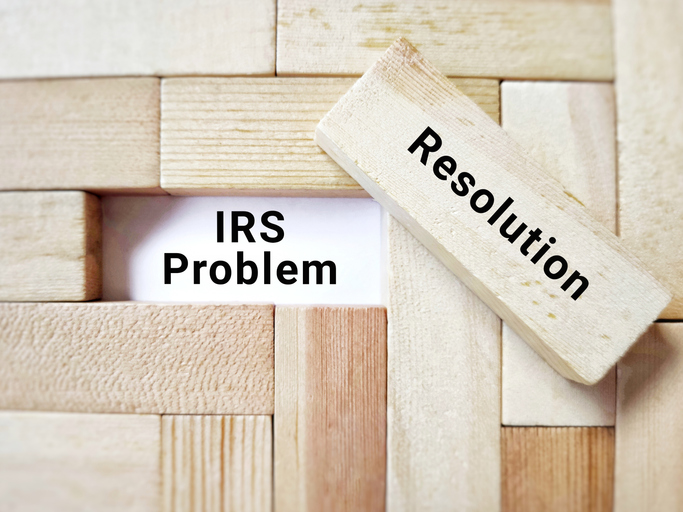On March 5, 2018, 11 Democratic members of the House Ways and Means Committee sent a letter to Acting Internal Revenue Service Commissioner David J. Kautter, requesting an explanation for restrictions placed on the prepayment of property taxes in 2017. Kautter is serving as commissioner until Charles P. Rettig, President Trump’s nominee, is confirmed by the Senate. Once confirmed, it is expected that Mr. Rettig will oversee the implementation of the Tax Cuts and Jobs Act (TCJA), which was enacted in December 2017.
The letter from the Democrats criticizes the Service’s interpretation of certain provisions within the TCJA and accuses the Internal Revenue Service of alleged “bureaucratic overreach.” The letter writers note many taxpayers’ confusion after the rushed passage of the Republican tax bill at the end of 2017 and poses several questions that they would like the IRS to address.
The primary matter challenged in the letter relates to the changes made by the TCJA affecting the state and local tax deduction. Democratic members of the Ways and Means Committee expressed concerns about the Service’s interpretation of the new tax law’s provisions on taxpayers’ prepayment of 2018 state and local taxes. According to the lawmakers, and factually true, the TCJA did not include any language disallowing prepayment of 2018 real estate taxes during the 2017 tax year.
Because the TCJA capped the deduction at $10,000, many homeowners in states with the highest property taxes rushed to prepay their 2018 property taxes before 2017 ended in hopes of saving on their federal taxes.
However, as detailed in a prior GYF blog post, shortly after the TCJA was enacted, the IRS issued IR-2017-210. The news release stated that 2018 state and local property tax prepayments would only be an allowable deduction in the 2017 tax year if the property taxes were assessed in 2017. Ways and Means Democrats argue that the word “assessed” does not appear in the provision of the TCJA related to the State and Local Tax (SALT) deduction and, therefore, the IRS has “invented” restrictions on property tax prepayments that the statute itself did not create.
The Democrats further noted:
“We view this as a clear case of bureaucratic overreach, and now, as a result, many of our constituents are losing a valuable deduction — and consequently part of their hard-earned income.”
“When Congress singled out a prohibition on only state and local income tax prepayment for future years, it is entirely reasonable to conclude that the omission of state and local property taxes was the express intention of the law. There is no reason to believe that Congress made a mistake in omitting property tax prepayments, and there was certainly no basis for the Internal Revenue Service to substitute its own policy judgments that departs from the act of Congress, especially when the consequence of the Internal Revenue Service’s determination may have cost taxpayers millions of dollars.”
The Ways and Means Democrats requested an update by March 16, 2018, on how the Internal Revenue Service intends to implement this particular aspect of the new tax law. Additionally, lawmakers included requests for detailed answers regarding the following questions:
- Please explain in detail the agency’s plans for real estate audits. How many enforcement agents and other agency resources will be dedicated to this? Will enforcement be spread evenly across all 50 states, or will the audits target taxpayers in blue states? Given how strapped the IRS is for resources, what other enforcement initiatives will recede in priority to accommodate the real estate audits?
- What statutory language or other evidence did the IRS consider authorization to disallow the itemized deduction of 2018 property tax prepayments made in 2017?
- On what theory did IRS determine it had authority to restrict taxpayers’ access to this deduction based on whether their 2018 state and local property taxes had been assessed?
- How many taxpayers have claimed itemized deductions for property tax prepayments, and in what counties/states do they reside? What was the dollar value of these deductions?
It is difficult at this time to predict what the outcome of this letter will be, given the political overtones of the issue and the desires of the writers from the committee. On a preliminary basis, our position would be that the prepayment of property taxes for which there is no billing or legal obligation for payment does not rise to the level of a valid income tax deduction, even if payment is made in advance.
In Pennsylvania, the state Enabling Act only permits local tax authorities to render billings twice for taxes, such as real estate taxes, on “pre-set” dates (usually in the spring for county, and township or city taxes, and in the fall for school taxes).
Grossman Yanak & Ford LLP will continue to monitor and post developments on this issue. Should you have specific questions or comments, please contact Bob Grossman or Don Johnston at 412.338.9300








